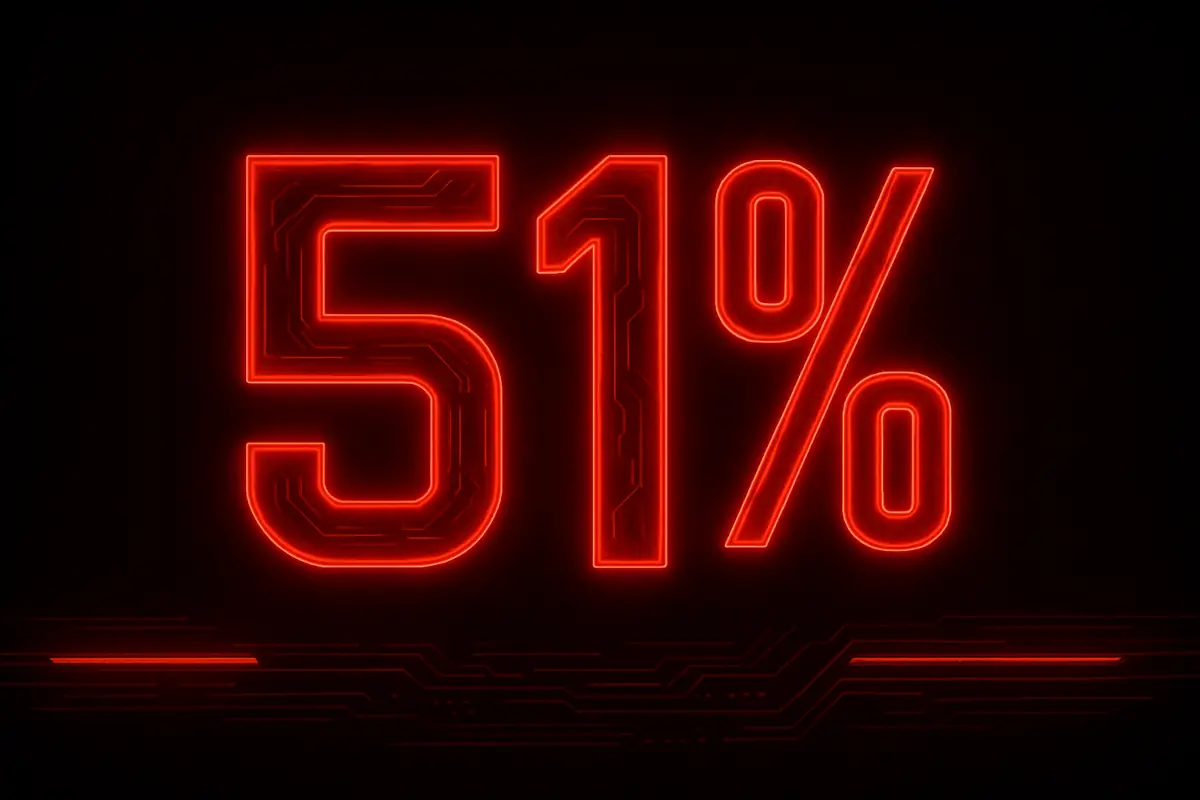Crypto has had a great year, and many people are still buzzing about it. Prices soared, a ETFs opened the door to fresh investors, and institutions began building up their reserves. Then came the election news, promises of policies that could boost digital assets even further, and a strong wave of confidence that pushed prices beyond old highs.
With all these headlines, it might feel impossible not to mention it around the dinner table. Yet there’s a good case for holding back, at least when it comes to the holiday gathering.
It can be tempting to sit down at Christmas lunch and tell everyone how well your portfolio has done. You might feel a strong urge to explain that you picked up your first coins a while back, held through tough dips, and now you’re in profit.
Part of you may believe it’s a feel-good topic: you saw something others didn’t, took a risk, and succeeded. Why not talk about it? The reasons are more numerous than you’d expect, and they usually point to the same conclusion: it’s best to keep your gains and your strong convictions quiet, at least in this setting.
Table of Contents
Family Skepticism
Digital money still sounds strange to a good portion of the population. Many only see headlines about scams, hacks, and risky bets. Others recall stories of coins losing big percentages overnight. As soon as you mention you invest in something “you can’t hold in your hand”, you might get a few raised eyebrows. Some relatives could go on the offensive, claiming you’re dealing in a product of speculation. And if they’ve decided that nothing will ever sway their view, no amount of genuine explanation will soften their stance.
Some folks will never see crypto as valid. They might call it a giant bubble or say it only rose because of certain leaders or certain policies. No matter how carefully you explain proof-of-work, proof-of-stake, or the convenience of digital wallets, they remain closed off. Changing someone’s mind on a major holiday is next to impossible when they’re resistant from the start.
Risk of Being Labeled “Lucky”
People who have heard about digital money know that some early buyers became wealthy. Or they may have read stories about folks losing huge amounts in a crash. Either way, there’s a common thread: if you made money, you must have been lucky. If you lost money, you must have been foolish. When that’s the mindset you’re up against, you’ll find yourself getting frustrated. That frustration can escalate the conversation in a room already brimming with seasonal stress.
Talking about your success won’t necessarily convince anyone that you’ve done thorough research. Some might shrug, say you got in at the right time, and imply it wasn’t due to any effort or knowledge on your part. Others may call it gambling, even if you spent hours reading about the technology. At best, you walk away annoyed that your achievements aren’t appreciated. At worst, you get a full-blown argument because someone wants to show off how much more they “know” about finance than you do.
Political Ties
This year, digital assets have been closely tied to the outcome of the election, which can trigger emotional responses. Donald Trump has offered pro-crypto pledges, and the market jumped. But that also means digital money has been dragged into political chatter. And politics at the family table can lead to sour moments. If someone in your family disagrees strongly with public figures that have boosted coin values, they may see your gains as part of a movement they dislike.
It’s amazing how quickly a polite gathering can shift into deep disagreements when politics intrude. It can turn an otherwise pleasant day into a marathon debate. If you bring up your holdings and link it to the positive momentum triggered by a particular politician, be ready for a tense exchange. Some might feel you’re supporting that politician’s entire agenda just because you benefit from one slice of it. Before you know it, you’ve gone from holiday cheer to heated debate, all because you mentioned your crypto profits.
Unwanted Attention
Family gatherings often include more people than you see on a regular basis. You might have distant cousins there, neighbors who pop by for a quick visit, or that friend of a friend who decided to tag along. The more you talk about your big gains, the more it spreads among folks you don’t really know well. Word of mouth can move fast and transform details along the way. By next week, it might be rumored that you’re swimming in millions when in reality, you made a modest profit.
People who think you’ve made a fortune might start knocking on your door for a share. They may feel entitled to some of it because “you must have more than enough.” This can lead to awkward requests, guilt trips, or outright demands for money. Keeping your portfolio private can save you that headache. You’re under no obligation to reveal your financial situation, even to those closest to you.
If you recently gained a fortune by crypto, you might want to read this article – we talk the next steps you should consider to secure your gains.
Friends and Family as Clients?
One tricky angle is the temptation to convince someone into investing themselves. When you’ve done well, it’s natural to want to help others enjoy a piece of the success. But if they do jump in and the market drops, you might be blamed forever. A sour investment experience can linger, especially if it causes big losses – for example, when they invested money they could not afford to lose. This kind of resentment can poison relationships that once felt stable.
Finances can already strain families and close friendships. You never really want to be the face of someone else’s losses. Recommending a specific project or offering a detailed how-to might sound kind at first, but if it goes south, it’s your fault in their eyes. Even if they used their own judgment, they may still see you as the person who “pushed” them into it. The best way to avoid that trap is by not bringing it up at all. Unless a relative or friend has already done solid research and just needs a technical pointer, it’s safer to change the subject.
Bragging Rights vs. Inner Peace
It feels good to pat yourself on the back, especially if people once dismissed your choice to put money into digital assets. Maybe they joked about you “throwing cash away.” Now that you’re up, it’s tough to resist saying, “Remember how you laughed at me back then?” But as tempting as that might be, the reward is short-lived. Yes, you get a brief ego boost, but you might also spark envy, irritation, or even deeper hostility.
Nothing kills the holiday mood faster than showing off. If you need recognition, it’s probably better to find it in online communities or among close friends who already share your interest. Those who never believed in crypto might still refuse to congratulate you or might claim you’ve been reckless. You can’t force acceptance. You’ll have a more restful and happy holiday if you let your success stay under wraps, rather than ignite old wounds or trigger new grievances.
Enjoying the Season Without Crypto Talk
The festive season is meant for laughter, good food, and relaxing with those you care about. Conversations about digital coins can wait until after the holiday. The price will rise or fall regardless of how many people you convince to jump in. Getting into long-winded explanations or arguments does very little to enhance the meal or the holiday spirit. You don’t need anyone else’s approval for your investment decisions, and you don’t owe anyone an apology if you’ve chosen a path they don’t understand.
If the discussion appears naturally – say, someone who is genuinely curious asks how you got started – then keep it light. You can mention that the market has been strong this year. If they want specifics, you can let them know it might be best to do some reading before spending money, especially if they’re new. The key is to stay relaxed, helpful only in the most general sense, and avoid becoming a personal advisor.
Final Thoughts
There’s always that instinct to share good news with friends and relatives. When it comes to finances, though, the festive table may not be the best spot. Family bonds are precious, and they can be damaged by even minor misunderstandings over money. The last thing most people want is to lose trust or start a family feud because of a conversation that should have been fun and casual.
Those who believe in digital assets should keep enjoying the journey on their own terms. If someone wants to learn more, they’ll come around in their own time. An awkward dinner debate won’t bring them closer to understanding. So celebrate your wins quietly, savor the holiday spirit, and let everyone else enjoy their gathering free from tense talk about gains, losses, or the newest developments in digital assets. The best gift you can bring to the table is a peaceful mood and genuine goodwill – no special coins required.




